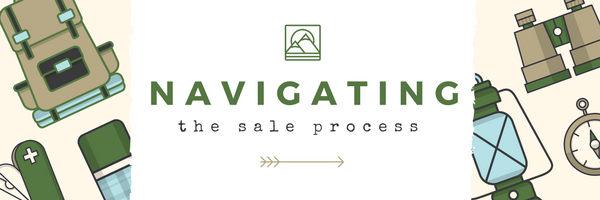Insights
NEW FEATURES BY DATE
List of Services
-
12/9/2025 Building Resilient Companies in a Complex Market: Quotes from Dean Ditmar12/9/2025
-
7/25/2025 Scaling with Intention: Growth Lessons from the Front Lines7/25/2025
-
6/6/2025 How to Position Your Brand for Acquisition: A Marketing Playbook for Sellers6/6/2025
-
4/16/2025 Cultivating a Culture of Accountability and Empowerment4/16/2025
-
1/1/2025 Case Study: Preserving Legacy While Driving Growth through Minority Deals1/1/2025
-
5/20/2024 Georgia Oak Associate Job Description5/20/2024
-
3/4/2024 1851 Franchise: "Private Equity and Sports: The MVP Playbook"3/4/2024
-
9/21/2023 (Atlanta Business Chronicle) Atlanta Braves legend joins Georgia Oak Partners9/21/2023
-
4/11/2022 Can You Raise Prices in This Market? If Not, When?4/11/2022
-
12/18/2021 Putting People First12/18/2021
-
6/30/2021 Staffing Industry Insights6/30/2021
-
3/18/2021 Remote Work: A Permanent Part of Every Industry3/18/2021
-
2/4/2021 A Year of Growth: Focusing on Human Capital in 20212/4/2021
-
8/27/2020 COVID-19 Leadership with Page Siplon, CEO of TeamOne Logistics8/27/2020
-
8/27/2020 Culture Shifts During COVID-19 and Beyond8/27/2020
-
7/23/2020 Georgia & National Labor Market Trends: A Look at Six Key Industries7/23/2020
-
7/23/2020 Miked Up: Organizational Diversity - Volume 2, Part 17/23/2020
-
6/16/2020 Virtual Communication in Uncertain Times6/16/2020
-
6/16/2020 Harnessing the Power of Technology6/16/2020
-
5/27/2020 Miked Up: Volume 1, Part 15/27/2020
-
5/6/2020 The Front Lines of Business Continuity5/6/2020
-
5/6/2020 Navigating the New Normal5/6/2020
-
1/8/2020 Build Successful Teams with These 5 Elements1/8/2020
-
6/5/2019 Minority vs. Majority Deals6/5/2019
-
3/1/2019 Video Case Study: Sailfish Boats3/1/2019
-
11/28/2018 What Is Your Legacy?11/28/2018
-
9/7/2018 Recruiting and Retaining Manufacturing Talent9/7/2018
-
4/5/2018 Navigating the Sale Process: From LOI to Post-Close4/5/2018
-
10/18/2016 Selling to Your Management Team10/18/2016
Navigating the Sale Process: From LOI to Post-Close

A Guide for Business Owners Considering a Sale
Selling all or part of your business can be like going on a family camping trip. If you know what you’re getting into and prepare adequately, it’s a rewarding and enriching experience for all involved. Though no two sales are identical, we’ve provided this guide for you as you “Choose Your Own Adventure”.
The initial process of selling your business begins with an evaluation of your personal needs and goals for the outcome of the transaction, as well as those of your existing partners, employees, customers and family. This internal evaluation, when done thoroughly, will narrow down the options appropriate for your business and help you choose the right equity partner or buyer. This point is critical, as the partner or buyer you select will impact not only the future of your company, but also your personal finances and the legacy you have built. (We’ve detailed what to consider during that initial phase of the sale process here.)
Assuming you have engaged an investment partner that is the best fit for you, this short guide will help you understand the sale process from initial documentation through closing and beyond. Selling all or part of your company is a process, not a singular event, and the timeline can vary significantly based on the situation. This guide serves as a loose timeline for a typical transaction.
 1. Letter of Intent (LOI)
1. Letter of Intent (LOI)
The Letter of Intent (LOI) is a nonbinding document in which the buyer outlines in writing the terms and price to which you’ve informally agreed, and commits to confidentiality so that they can further examine your company. Signing an LOI is the first step in the effort to move a deal from informal communications to execution. It is important to make sure that everyone understands all elements, and that the document contains a reasonable amount of detail. The LOI sets the pace for the rest of the process, so it is important to do it well. Therefore, it’s possible you might exchange a number of drafts of the LOI before it is acceptable to all parties. It generally takes 30 to 60 days to negotiate the Letter of Intent.
 2. Due Diligence and Purchase Agreement
2. Due Diligence and Purchase Agreement
Once the LOI is signed, the next steps are to negotiate the purchase agreement and perform due diligence. These are separate processes, but they usually occur in parallel and take about 90 days to complete. During this phase, the buyer will conduct due diligence – a process through which they conduct an examination of your company in more detail to ensure that everything is as they initially understood it to be. You should also conduct your own diligence on the buyer, if you have not already done so. This may involve speaking with their existing partners to gain a better understanding of their working style and relationships or asking for other information about their track record. At the same time, you and the buyer will negotiate on the terms of a purchase agreement – the formal document that defines the terms of the deal, and any supplementary contracts such as non-competes or consulting contracts.
During this time, the buyer will work on procuring any third-party financing for the deal. Generally, outside and/or seller financing will need to be arranged by the buyer.
 3. Closing
3. Closing
During the closing, the business actually changes hands. This step is handled primarily by the attorneys and may take three to five days, depending on the complexity of the transaction. At closing, the buyer will pay any cash consideration by wire transfer to your bank account and/or issue shares constituting any stock consideration. Simultaneously, you will transfer the acquired shares or assets through appropriate instruments.
Managing Your Business While the Deal is Underway
You can generally expect a minimum of three to six months from the time you initially kick off the conversation with the potential buyer until the close of the transaction. During this time, it is critical to keep your eye on the ball. Be careful not to let your business performance decline because you’re too focused on the sale process. Ensuring that the business remains on track and the financial results come in as expected (or even ahead of budget), will be an important factor in your ability to successfully close the transaction.
After The Closing
After closing the transaction, your involvement with the business depends on the structure you negotiate with the buyer. Some sellers stay involved in the day-to-day operations of the company, some maintain consulting relationships and others separate their ties with the business. It is important to have a transparent discussion with the buyer about your transition plan before the deal closes to make sure there is a common understanding of your role.
Georgia Oak Partners has a unique approach to partnerships, which you can learn more about here. You may also email us to begin a confidential conversation.
At Georgia Oak, we’re committed to enhancing your business and helping founders grow their legacies
to their fullest potential. If you find we’re a good fit for your next step, please reach out to us.



